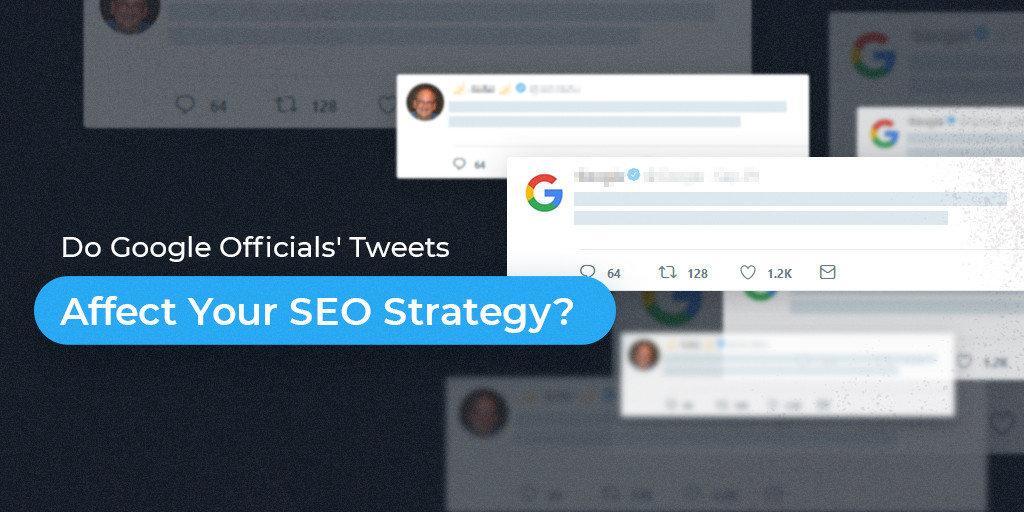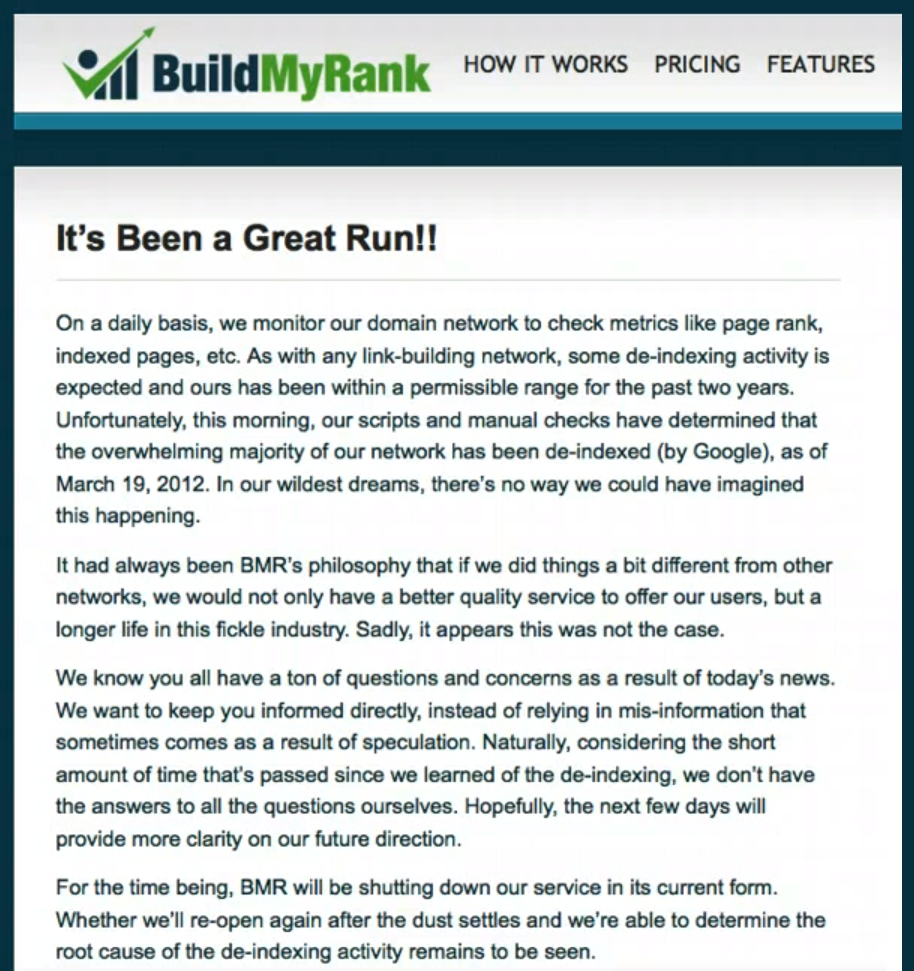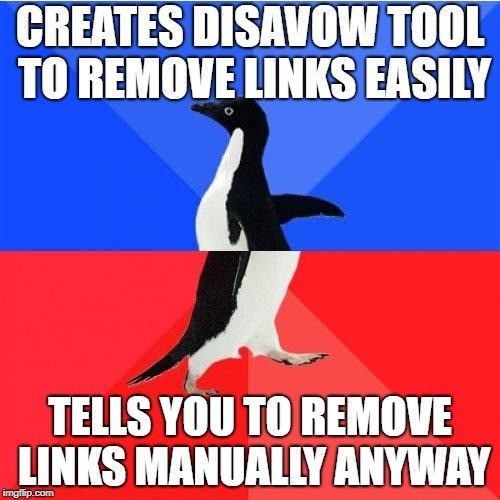Google’s advice about SEO should be the best in the business, right? I mean, they pretty much created it, so they definitely know what they’re talking about, don’t they? Well, that’s pretty much true. But when it comes to such a big company like Google, even officials sometimes contradict themselves.
Also, it’s understandable that Google often keeps things secret. If they told people everything about the algorithm, people would probably abuse the system and Google doesn’t want that to happen.

In this article, we’re going to cover some controversial topics and take a look at some situations where Google officials contradicted themselves.
- Doorway Pages- Is There Any Alternative?
- Duplicate Content – Does Google Care Who Was the First Publisher?
- Multiple H1s- Are They A No-No?
- Private Blog Networks – Do They Still Work?
- Disavowing Links – Sometimes It Works, Sometimes It Doesn’t
- Content Pruning – Is It A Good Strategy Or Not?
1. Doorway Pages – Is There Any Alternative?
Doorway pages have always been confusing. Google’s official definition of Doorway Pages is the following:
Doorways are sites or pages created to rank highly for specific search queries.
Aren’t those like… all the pages on the internet? Everybody creates pages to rank for specific queries!

I know, Google is actually referring to pages that don’t really add value to the internet. People who just try to rank for anything possible and create a ton of spammy pages to achieve that.
But many websites out there genuinely have multiple services or locations.
For example, if I have a car rental company that rents cars in 25 countries and over 1,000 cities, what do I do? Do I just create a single page with the title “Car Rental Belgium, Denmark, Hungary, Italy, United Kingdom, etc.”? I highly doubt it. I will structure my site hierarchically and create thousands of pages, one for each city.
What about content? Do I have to write unique content for all 1,000 cities? We all know that’s not going to happen. The content will most probably be very similar, with different city or country names.
Will Google penalize me for that? No. And there are a lot of examples that back this up. You can check out this detailed article about doorway pages, if you want to know more.
You see… the problem with doorway pages isn’t the fact that they’re not allowed, it’s the fact that there’s no alternative, no clear explanation of the phenomenon!
If you read the Google definition till the end, you can notice this phrase, which is at least ambiguous:
Substantially similar pages that are closer to search results than a clearly defined, browseable hierarchy.
If you want to read probably everything that’s ever been written about duplicate content you can check this link.
2. Duplicate Content – Does Google Care Who Was the First Publisher?
Google cares about scraped and duplicate content but only in its own interest. It basically doesn’t want duplicate results in its search results.
That’s why in its official page about duplicate content, it doesn’t talk much about cross-site duplicate content. We have to gather the pieces from where we can.
If you have 100 pages that are exact copies of another site that’s been indexed for some years and has a good domain strength, you probably won’t rank with those pages. However, if you have a unique page that is well optimized, it will rank very well.
However, this doesn’t mean that you can’t be outranked by websites that ‘steal’ your content. Think of how Amazon or similar sites outrank a lot of their vendors’ websites, which have the same content and were probably published first.
Google doesn’t really care who’s first. It just cares to not have the same result twice.
So, when someone stole and got indexed with it first, John’s advice to me was that I should sue them.
We just rank the pages, we don’t decide who owns the content. If it’s a legal issue, you might want to get legal advice instead.
—
John
(@JohnMu) September 22, 2017
People have assumed that there’s some sort of duplicate content penalty. In reality, there isn’t. Unless you heavily scrape and some sort of manual action is applied, there’s isn’t such thing as a site-wide duplicate content penalty. It’s just Google ranking the result it wants or considers best.
John Mueller confirms this, but it’s not an easy answer to find:
There are many other confusions related to content. Here’s one example of how two officials have answered things differently.
Gary Illyes’s Answer:
In general yes
— Gary “鯨理” Illyes (@methode) April 4, 2017
John Mueller’s Answer:
I suspect we don’t have that hard-coded, but our systems can learn that fairly quickly.
—
John
(@JohnMu) April 5, 2017
Gary kind of answered yes (but with adding ‘in general’), while John kind of answered no. I’m not sure whether they purposely answer things to create confusion (again, maybe it’s some secrecy conduct) or simply don’t really know all the answers because Google is so complex so they just assume them, but one thing’s clear: if you want to know if Google treats ‘and’ and ‘&’ the same, you’re going to have to test it.
3. Multiple H1s – Are They A No-No?
People often ask if it’s ok to have multiple H1 headings on your site. Why? Because most tools that analyze websites there have a feature to identify the pages with multiple H1 tags.
Google has two official answers on this matter. One by Matt Cutts (Former Head of Spam) and one by John Mueller (Current Head of Spam).
Matt Cutt’s Answer:
John Mueller’s Answer:
Ok, so from both of these answers we understand that it’s ok to use multiple H1’s.
So where’s the problem?
Well, as stated before, the fact that most tools still have sections that outline pages with multiple H1s.
So, as John stated above, it’s not a problem with HTML5. But if you listen carefully, you can hear him saying ‘there’s a chance’ of your site using HTML5 correctly.
Well, I’d say you shouldn’t take any chances and use a single H1 tag. Even if it’s not a problem, by using multiple ones you’re giving Google an opportunity to look in multiple places instead of stating one clear location of your most important keywords.
4. Private Blog Networks – Do They Still Work?
This is where Google actually gets to be cool. Why? Because it was one step ahead. One big step.
The truth is that Private Blog Networks still work. And they’ll probably always work, as long as Google uses backlinks to rank sites (maybe even if backlinks become obsolete).
When PBNs got popular, people immediately monetized the niche by posting PBN services on BlackHat SEO forums. Everyone was happy.
Then, one day, this happened:
Today we took action on a large guest blog network. A reminder about the spam risks of guest blogging: http://t.co/rc9O82fjfn
— Matt Cutts (@mattcutts) March 19, 2014

So how is this possible? How could Google wreck an entire PBN network built by professionals? Well… it’s probably pretty simple. They bought the service.
After this episode, everyone started to go crazy on forums and social media that PBNs are dead. Even big marketers, like Spencer Haws from Niche Pursuits and Pat Flynn from Smart Passive Income killed their PBNs and said that they don’t work anymore.
On the other side, marketers like Glen from Viperchill and Matthew Woodward, who figured what was going on, kept doing it. And guess what? It still works.
However, we don’t recommend building a PBN. The risks, costs and time involved far outweigh the benefits.
Just keep in mind what kind of sneaky things Google does when you read any of their content.
5. Disavowing Links – Sometimes It Works, Sometimes It Doesn’t
SPAM is awful. Especially when you’re not the one doing it, right? I mean building spammy links is bad when you get caught, but at least you know you’re guilty.
However, when someone else bombards your site with links that you don’t want, that’s a lot worse.
Back in the day, the only way to get rid of those links was to remove them manually.
Kind of hard, considering they were made by someone else with the specific thought of bringing you down.
But Google comes to the rescue! Around 2012, Google introduced the Disavow Links Tool, where you can upload a list of spammy links and, supposedly, Google will ignore them.
Except… it doesn’t. At least not always. We’ve had many encounters with websites attacked with negative SEO and after submitting the disavow file, nothing really changed.
Sometimes it works, but sometimes it doesn’t, so Google still tells you to try and remove the spammy links off the web and use the disavow tool only as a last resort.

I’ll tell you one thing, though. If you’ve been bombarded with negative SEO, will be very hard to remove those links. Just identify them (you can do this using our Unnatural Link Detection Tool) and submit them for disavow.
A better way of getting your ranks back up is to focus on improving your profile with new, natural backlinks and also work on UX, technical and on page optimizations.
6. Content Pruning – Is It A Good Strategy Or Not?
Glenn Gabe asked this question in one Google Webmaster Central office-hours hangout:
“What’s the best approach for low-quality content?”
John Mueller said that both improving content and pruning content are valid strategies.
However, this conflicts with what Gary Illyes said.
Gary Illyes said that content pruning is not a good strategy to improve overall site quality.
You can watch the full hangout here:
John Mueller said that it’s not uncommon for Google officials to give different answers in hangouts vs. conferences, but that doesn’t really help.
Although content pruning did bring results for some people, from our own experience, content pruning does not seem to be a very efficient way of optimizing your content.
We’ve spent a lot of time identifying what content wasn’t bringing any traffic to our site and redirected it to other relevant articles, but we haven’t seen any boosts in traffic. In some situations, excessive content pruning can actually be harmful!
From the video above, we can understand that removing content from your site should be a last resort. Unless you can’t improve anything else, leave the content be.
Conclusion
The conclusions we can draw from these things is that Google has become so complex and maybe not even their officials or creators can really understand how it works anymore.
There’s a very interesting TED talk on this topic, although related to YouTube’s ads algorithm:
Considering these things, listen to what Google’s officials have to say, but take the advice with a grain of salt. Research more and make sure you really understand the concept before you take any major action.
Do you have any dilemmas regarding SEO issues? Maybe some contradictory information from Google that we did not mention above? If yes, give us a shout in the comments section and we’ll research it to find out more and add it to the list.
The post How Much Do Google Officials’ Tweets & Posts Affect Your SEO Strategy? appeared first on SEO Blog | cognitiveSEO Blog on SEO Tactics & Strategies.
How Much Do Google Officials’ Tweets & Posts Affect Your SEO Strategy? posted first on http://nickpontemarketing.tumblr.com/
No comments:
Post a Comment